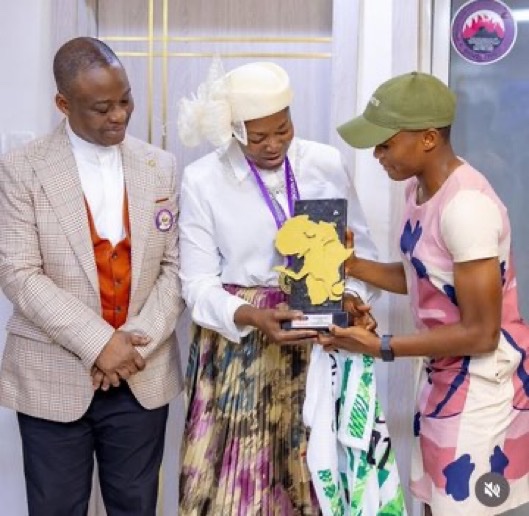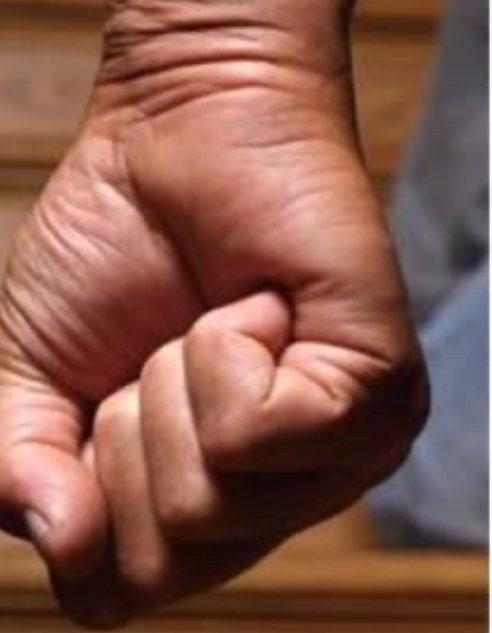
Super Falcons Star Rasheedat Ajibade Dedicates WAFCON Medals to Pastor Olukoya at MFM’s “Power Must Change Hands”

In a moment that has stirred hearts across Nigeria, Rasheedat Ajibade, one of the standout stars of the Super Falcons squad, presented her WAFCON gold medals to Dr. Daniel Olukoya, the General Overseer of Mountain of Fire and Miracles Ministries (MFM), during the church’s revered Power Must Change Hands program on Saturday, August 2.
The event, held on the first Saturday of every month, took on an extraordinary emotional weight as Ajibade, clad in modest attire and visibly moved, stepped forward to honor her spiritual mentor—offering her coveted medals from Nigeria’s dramatic 3-2 comeback victory over Morocco on July 29, where the Super Falcons clinched their 10th WAFCON title.
With the auditorium packed and millions watching online, Ajibade’s gesture sparked a rapturous ovation from the congregation. Addressing the church briefly, she said:
“Everything I am and everything I’ve achieved is by the grace of God. This medal belongs to Jesus. And I honor the vessel through whom His fire has guided my steps.”
Her act of faith speaks volumes, not only about her personal conviction but also about a broader cultural phenomenon: the fusion of faith and sports performance in African contexts. A 2021 study in the Journal of Sport and Social Issues revealed that 68% of Nigerian professional athletes believe their religious beliefs enhance their performance, a stark contrast to the Western sports world where psychology and analytics often take precedence.
Ajibade, who is also known for her community development initiatives and advocacy for women in sports, has long been associated with MFM—whose football ministry, MFM FC, has nurtured many talents. Her return to the altar with her medals has been hailed by fans as a powerful testimony of gratitude.
The WAFCON 2025 final, played in Dakar, Senegal, had gripped millions, as the Nigerian team bounced back from a shocking 2-0 first-half deficit to clinch the trophy in extra time, with Ajibade’s assist and goal proving crucial. It was a match that showcased grit, determination, and spiritual resilience—qualities many Nigerians attribute not just to training, but divine favor.
This moment at MFM now adds a new layer to that narrative. Commentators and religious leaders have already drawn parallels between Davidic humility and athletic glory, with Pastor Olukoya himself describing Ajibade as “a vessel of divine fire who refused to bow to worldly glory.”
Online reactions have been swift and passionate. One viral post on X (formerly Twitter) read:
“Ajibade giving her medals to God first before any celebrity fanfare? This is the Nigeria we love. Spiritual strength, cultural pride, and excellence.”
However, not all responses were glowing. Some critics argue that the gesture reinforces the over-reliance on religious institutions for validation, sidelining professional recognition structures. But supporters quickly countered that faith remains a cornerstone of identity in Nigerian life—especially for athletes who carry the hopes of 200 million people.
As Nigeria basks in the afterglow of another continental triumph, Ajibade’s public act of worship has added a deeply personal and nationalistic tone to the celebration—a reminder that in a land where miracles are part of the playbook, every goal has a higher calling.


